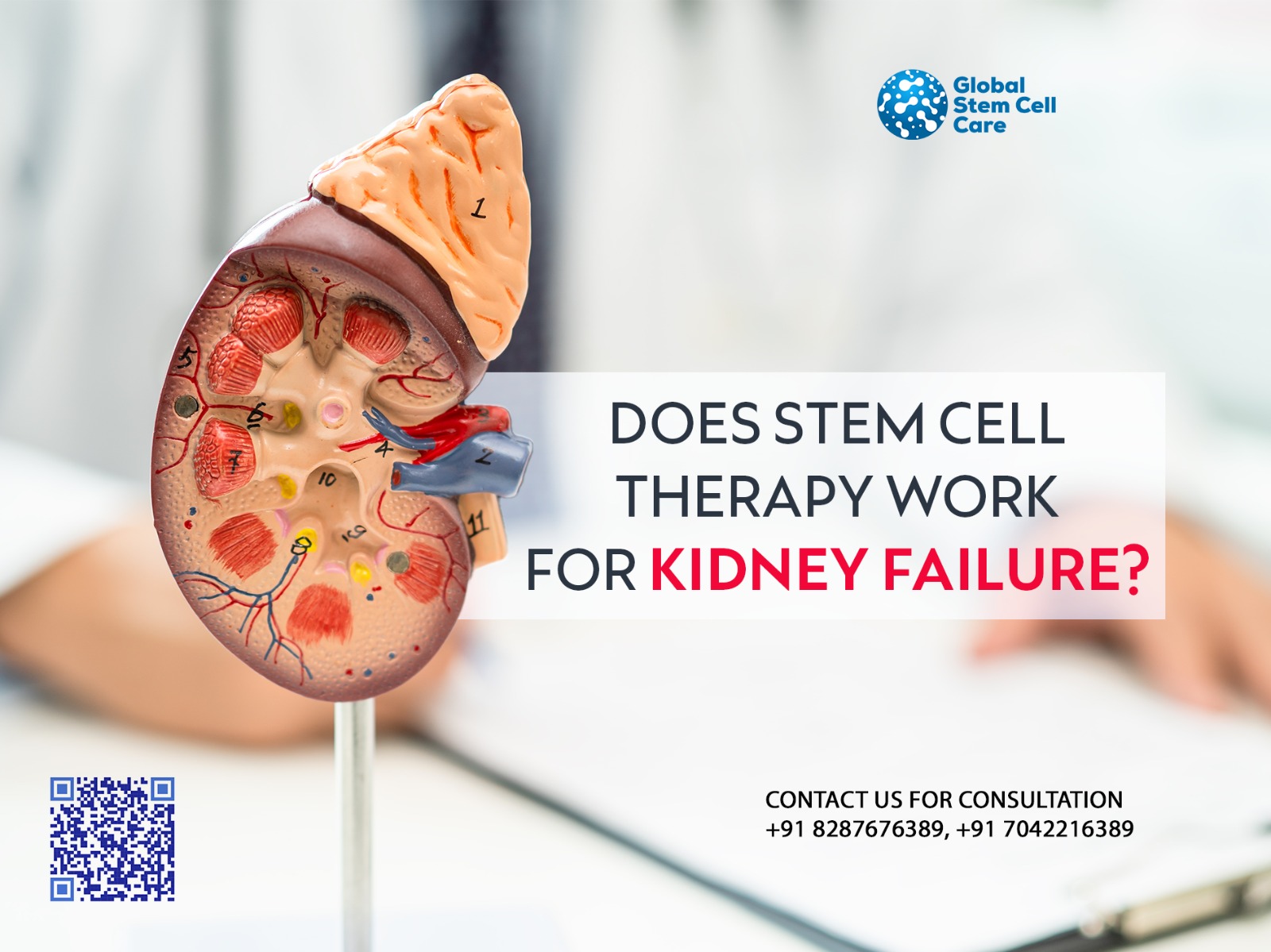Kidney failure is the most serious medical condition that affects millions of patients worldwide and disrupts essential waste filtration and electrolyte balance. Therapies have been developed conventionally using dialysis and transplants, which are very important in managing kidney disease. However, it does not restore lost cellular function or even support the existing cells. Recently, in the medical world, stem cell therapy has emerged. This is believed to support or restore kidney function at the cellular level. It is through these modern approaches that Global Stem Cell Care can provide consultancy support to those handling kidney diseases as a specialist in stem cell solutions.
Understanding Kidney Failure
The kidneys also perform very important functions, including filtering out toxins and waste from the blood, maintaining blood pressure, and maintaining electrolyte balance. Once the kidneys cease performing these functions adequately, then their failure has occurred. This comes with severe complications of waste accumulation in the body, fluid imbalance, and more susceptibility to infections.
The two types of kidney failure :
Acute Kidney Failure: Loss of kidney function that occurs suddenly and may be reversible if caught in time.
Chronic Kidney Failure (CKD): There are slow, progressive causes including diabetes, hypertension, and certain genetic disorders. Chronic kidney disease may advance to ESRD and need to be placed on dialysis or get a kidney transplant.
Conventional treatments can only prolong life, but the kidneys are not repaired, and the progression of the disease does not cease. The gap created calls for other alternatives, including stem cell therapy, for patients with failure of the kidney.
How Stem Cells Work for Kidney Failure
These are stem cells, therefore, they differentiate into cell types, so, promoting tissue repair and regeneration. Various types of stem cells exist that are potentially able to differentiate into renal cells. The most useful functions of using stem cells in the treatment of renal failure include:
Reducing Inflammation: Using their anti-inflammatory properties makes it possible to minimize kidney inflammation, thus further delaying the disease progression.
Encourages Cellular Repair: They can encourage the regeneration of damaged kidney cells, thus restoring some degree of function.
Protection of Existing Cells: Stem cells promote growth factors that maintain the normal activities of existing cells of the kidney, thus not causing further damage.
Potential Benefits of Stem Cell Therapy Against Kidney Failure
- Delayed Progression of the Disease
Stem cell therapy delays the progression of kidney disease in patients with chronic kidney failure because the stem cells reduce inflammation and trigger cellular repair that keeps the remaining kidney functions for longer durations.
- Dependence on Dialysis Reduced
In some patients, this treatment will decrease the rate or necessity of dialysis. While it certainly cannot replace dialysis completely, stem cell therapy may yet improve kidney function sufficiently to reduce reliance on routine treatments.
- Decrease the Risk for Transplants
A kidney transplant is life-saving and carries with it in itself and is associated with rejection and complications. Stem cell therapy might therefore prevent or postpone the need for transplant by replacing enough tissue in the kidneys to improve some renal function.
- Quality of Life Improvement
Patients receiving stem cell therapy are likely to have significantly fewer symptoms associated with kidney disease such as fatigue and swelling, which in turn has positive effects on the quality of life.
- More Natural and Least Invasive
Stem cell therapy is relatively less invasive than transplants. Cells are administered intravenously, or they are injected into the kidney without involving major surgery, which reduces the time of recovery.
- Hope for Early Stagers
Stem cell therapy may be useful to a patient in the initial stages of failing the kidneys who wishes to keep the kidney functioning without getting on dialysis or transplant.
Putting All Together
Stem cell therapy opens up this new horizon in treating renal disease. It may therefore prove to be a means to slow down the curve of progression and decrease reliance on dialysis as well as improve quality of life in general. Although it is not a cure, it does hold much promise for patients afflicted with kidney failure, particularly those still in the early stages or who are unable to present themselves for transplant surgery. Stem cell therapy will probably become an even more significant addition to methods targeted at the treatment of kidney disease.
Global Stem Cell Care is a consultancy for all patients requiring stem cell treatment for kidney failure. With appropriate guidance, this therapy could emerge as a potential alternative for the management of kidney disease.
